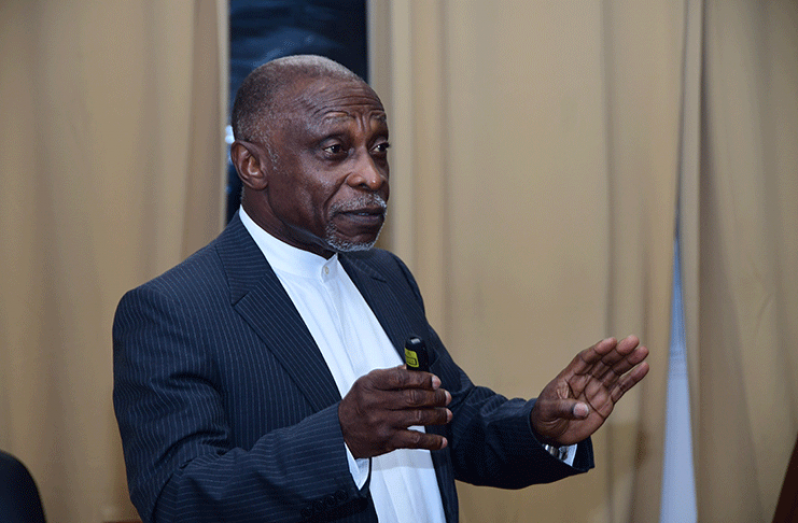Advisor on Borders to the Government of Guyana, Carl Greenidge is calling for unity among the nation’s major political parties as the International Court of Justice (ICJ) is set to rule today on its jurisdiction to hear the border controversy case between Guyana and Venezuela.
“One of the requirements here in my view is for Guyana to ensure that in approaching the court and in working on this matter, it is evident to the court and to the world that Guyana has unity,” Mr. Greenidge, who served as Minister of Foreign Affairs in the previous administration, said in a comment to the National Communications Network.
He pointed out that the perceived division between political parties in the country is one of the areas ‘hostile neighbours’ capitalise on, and this must be guarded against.
“To the extent that they perceive such a division, you can see them trying to mosey up to one and decry the other, or vice versa,” Mr. Greenidge stated.
Speaking at his inauguration in August this year, Guyana’s newly elected President, Dr. Irfaan Ali said there will be no policy more sacred than that relating to the country’s borders, for his administration.
“As Guyanese, all of us stood with the previous administration in defence of Guyana’s patrimony. For us, Guyana’s territorial integrity is never a matter for domestic division; it is always a matter for national cohesion,” the President said.
On June 30, a battery of international lawyers with key support from Guyanese legal luminary Sir Shridath Ramphal presented Guyana’s case to the ICJ to show why that august body has jurisdiction to hear the matter of the border controversy with Venezuela.
Guyana had on March 29, 2018, filed in the Registry of the Court an application instituting proceedings against Venezuela with regard to the controversy concerning the legal validity and binding effect of the award regarding the boundary between the colony of British Guiana and the United States of Venezuela, of October 3, 1899.
Venezuela maintains that the ICJ does not have jurisdiction to hear the case, insisting that it and Guyana should settle the matter bilaterally.
The ICJ determined that it had to resolve first of all the question of its jurisdiction, and that this question should accordingly be separately determined before any proceedings on the merits of the case.
The history of proceedings can be found in Press Releases Nos. 2018/17, 2018/31, 2020/5, 2020/8, 2020/15, 2020/17 and 2020/18, which are available on the Court’s website (www.icj-cij.org).



